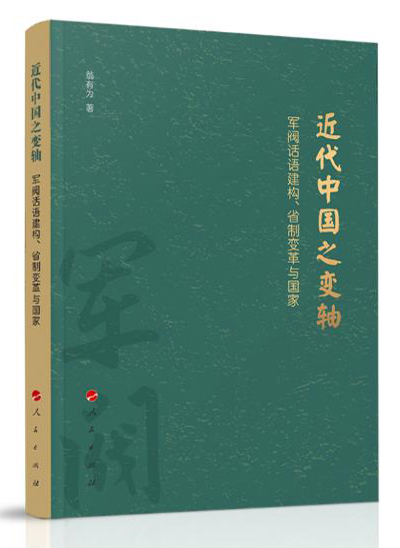Unique discourse construction of warlords in modern China

The Axis of Changes in Modern China: Warlord Discourse Construction, Provincial System Reform and State
The Axis of Changes in Modern China: Warlord Discourse Construction, Provincial System Reform and State, written by Weng Youwei, a professor from the School of History and Culture at Henan University, discusses three axial problems in the process of modern China’s social transformation during the late Qing Dynasty (1644–1911) and the Republican era (1912–49)—the separate warlord regimes amid the invasion of Western imperialist powers and the intensified domestic conflicts; social changes caused by the reform of the provincial and regional system; and the state system entering into comprehensive reformation under a crisis situation.
Separate warlord regimes were a major social problem that existed for a long time in modern China, and also a theoretical focus of great changes in modern China. To gain a more real sense of the history of social changes in modern China, Weng makes a new attempt to reveal the axis of changes in modern China by constructing the warlord discourse system from the perspective of contemporaries.
Weng analyzes “the discourse of warlord phenomenon,”“the discourse of warlord causes,”“the discourse of warlord characteristics,”“solutions” given by the CPC and other political forces to the warlord issue, and the anti-feudal theory with the discourse of “feudal warlords” as the axis. He concluded that the separate warlord regimes and the reform of the provincial and regional system as well as related problem solving, is the main cause of social changes in modern China. The weakening of central state power in the late Qing Dynasty led to the intensification of the separate warlord regimes resting on provinces and regions in the early Republic era, which forced all circles to attach importance to the remolding of state central power. They realized that national governance can only recover modern normal order through building the authority of rule of law.
Although Weng does not deliberately connect history with reality, his interpretation of major historical issues coincides with the spirit of the times and mainstream values. For example, when interpreting the warlord discourse system, the necessity to establish the authority of rule of law is expounded upon from different angles. When discussing the countryside and peasants in the Republic era, the author elucidated the historical understanding that the people’s destitution and their failure to make a living will inevitably lead to political decline. Given the handling of government affairs during the Nanjing KMT Government, and learning the lesson that the Chiang Kai-shek government knew about corruption yet “could not deal with it,” Weng highlights punishing corruption and constructing a law-based government and establishing the authority of rule of law.